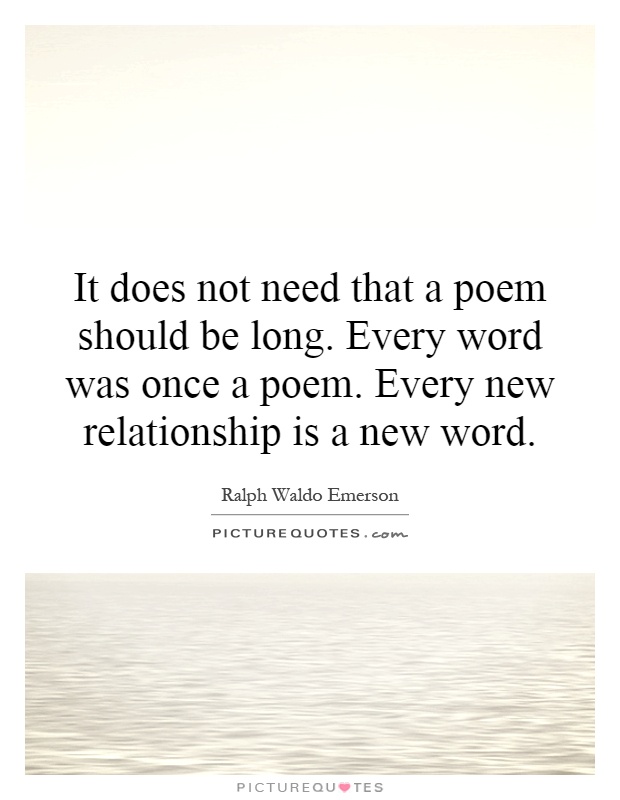It does not need that a poem should be long. Every word was once a poem. Every new relationship is a new word

It does not need that a poem should be long. Every word was once a poem. Every new relationship is a new word
Ralph Waldo Emerson, a renowned American essayist, lecturer, and poet, was a firm believer in the power of concise and impactful writing. His works often reflected his belief that brevity can be just as powerful as length when it comes to conveying deep emotions and profound truths. In this context, the statement "It does not need that a poem should be long. Every word was once a poem. Every new relationship is a new word" perfectly encapsulates Emerson's philosophy on poetry and human connections.Emerson believed that every word has the potential to carry immense meaning and significance, much like a poem. He understood the power of language to evoke emotions, provoke thoughts, and inspire change. For Emerson, the essence of poetry lay not in its length or complexity, but in its ability to capture the essence of human experience in a few carefully chosen words.
In the same vein, Emerson saw every new relationship as a new word in the poem of life. Just as each word contributes to the overall meaning and beauty of a poem, each new relationship adds depth and richness to the tapestry of human experience. Emerson believed that connections with others are essential for personal growth and understanding, and that each new relationship brings a unique perspective and insight into the world.
Emerson's own poetry often reflected his belief in the power of simplicity and brevity. His poems were characterized by their concise language, vivid imagery, and profound insights into the human condition. Emerson's poetry was a reflection of his deep connection to nature, his exploration of the self, and his contemplation of the mysteries of existence.












 Friendship Quotes
Friendship Quotes Love Quotes
Love Quotes Life Quotes
Life Quotes Funny Quotes
Funny Quotes Motivational Quotes
Motivational Quotes Inspirational Quotes
Inspirational Quotes